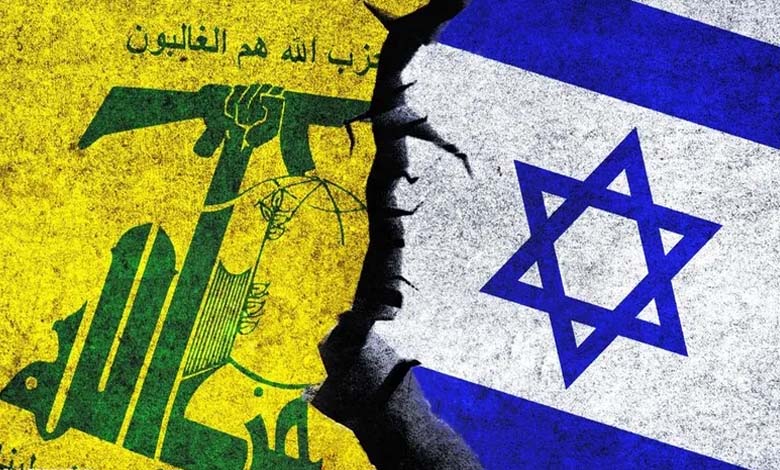Can Israel Deter Hezbollah? Dark Scenarios for a Potential Confrontation

As the intensity of rhetoric between Tel Aviv and Tehran escalates, the blue line separating Lebanon and Israel comes into focus, with the common wisdom being that even a minor confrontation on this front could lead to an all-out war.
-
Crisis Between Defense Minister and Army Chief Amid Heightened Tensions Between Hezbollah and Israel
-
12 Hours of Chaos in Israel “Saved” Hezbollah from a Potential Strike
However, for the first time in a long while, the fear of such a war feels real. Lebanese citizens have started stockpiling essentials, buying food and fuel in large quantities.
Some Western nations have placed their forces on alert, ready for evacuation operations, while others have urged their citizens to leave the country, though some commercial flights remain available.
Increasing Likelihood of Confrontation
According to the American magazine Foreign Policy, everyone in Lebanon agrees that the likelihood of a full-scale war with Israel is higher than ever since the 2006 conflict.
But if Israel’s goal is the permanent deterrence of Hezbollah, war may not be the best strategy available, according to the source.
Some argue that the status quo with Hezbollah before the Israeli war on Gaza, which began on October 7, might have been Israel’s best scenario, as the borders had been mostly calm since the 2006 war. At the same time, opposition to Hezbollah within Lebanon had been growing, especially after the Beirut port explosion.
One strategy the Israelis are considering is to limit any attacks to Hezbollah-dominated areas in southern Lebanon, the suburbs of Beirut, and the Bekaa Valley.
-
Hezbollah Conceals Its Losses with Promotional Displays of the ‘Hudhud’ Drone
-
Know Hezbollah’s “Primitive” Tactics in Confronting Israeli Technology
Such a strategy would further disrupt Lebanon’s already collapsed economy, but the main strategic goal would be to push Hezbollah supporters into other areas, thereby increasing social tensions. The Israelis believe this would locally deter Hezbollah.
Eran Lerman, former Israeli deputy national security adviser, said: “I am concerned about Hezbollah’s Shiite supporters. Many people have scores to settle with Hezbollah since the Beirut explosion.”
According to Lerman, “Israelis have nothing against the Lebanese people, and even if a large-scale war were to break out, Tel Aviv would try not to attack Lebanese infrastructure.”
-
Violent Clashes Between Hezbollah and Israel Amid Preparations for Total War in Southern Lebanon
-
Israel and Hezbollah: Is Confrontation Inevitable?
Over the past few years, as the Lebanese currency collapsed, the country slipped into an economic crisis, and the port explosion killed over 200 people, opposition to Hezbollah has become more vocal, even among some within the Shiite community. But there are no clear numbers.
Some analysts believe it is uncertain how the Lebanese would react when faced with Israel.
Is There an End to the Israel-Hezbollah Conflict?
According to Foreign Policy, if Israel wants to create the right conditions for Hezbollah to be dismantled by the Lebanese people, it must first “understand how to deal with Hezbollah‘s weapons and followers without overreaching in a way that would backfire on its campaign. This is a daunting task. In times of war, it’s unlikely all pieces will fall perfectly into place for Israel to achieve its goals.”
-
Leaks from the Secret Meeting: Iran Refuses to Support Hezbollah and its Iraqi Militias Against Israel
-
Assassinated in a Night Raid on Southern Lebanon: Who is the Senior Hezbollah Military Leader Taleb Abdullah?
According to some estimates, Hezbollah has around 20,000 fighters, but its leader, Hassan Nasrallah, claims to have 100,000.
As for any scenario where Tel Aviv bombs Hezbollah-dominated areas, there would be significant loss of life, and the front could be dragged into an indefinite long war, with Hezbollah striking deep into Israel.
Elias Farhat, a former Lebanese army general, said that while there is no doubt Israel is militarily stronger with its conventional army and weapons, “Hezbollah resorts to asymmetrical warfare.”
The group “also deploys its units in hideouts, tunnels, and caves, invisible to the naked eye,” Farhat said, suggesting that Israel may not know who its enemy is.
-
Dangerous Escalation: Hezbollah Targets Israeli Fighter Jets for the First Time Since the War Began
-
Hezbollah Faces Internal Dissent and Divisions
The former general believes that “a full invasion would allow Hezbollah to inflict significant damage in the heart of Israel, between Tel Aviv, Haifa, and Jerusalem… and we do not rule out Hezbollah advancing into Galilee.”
Here, Lerman points out that Israel understands the costs, but if Hezbollah does not back down – meaning stopping its attacks on Israel and withdrawing to the Litani River as agreed in UN Security Council Resolution 1701 – then Tel Aviv will be forced to launch an offensive.
The analysis’ author, Anchal Vohra, concludes that one way out of this impasse would be to start peace talks with the Palestinians and resolve this conflict, thereby addressing two existential problems at once.












